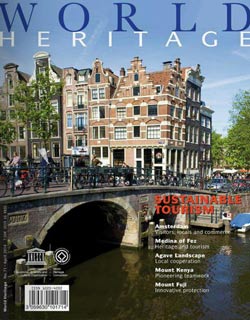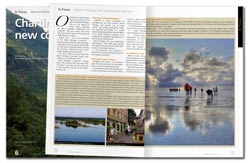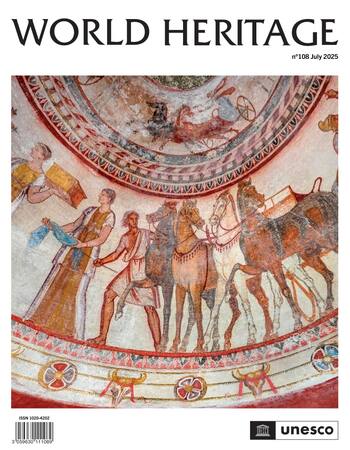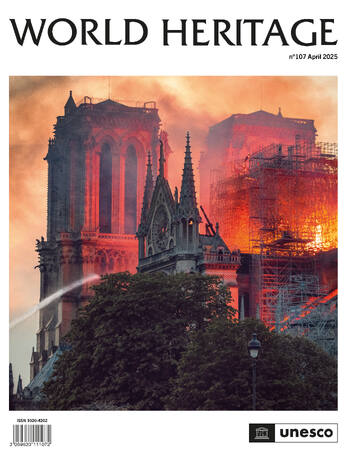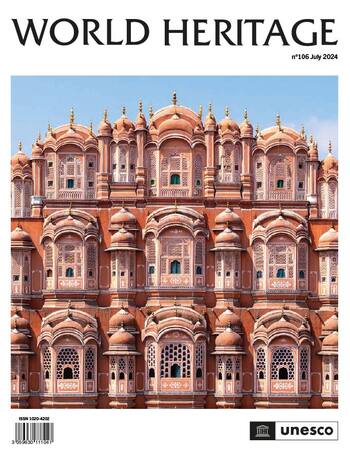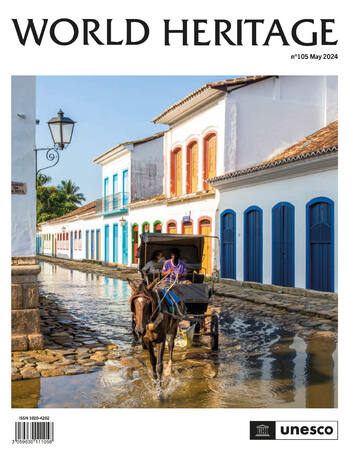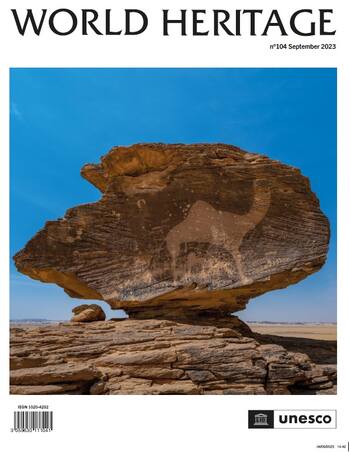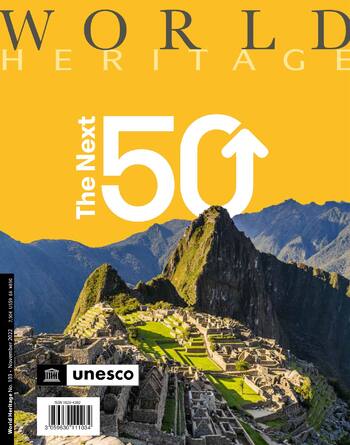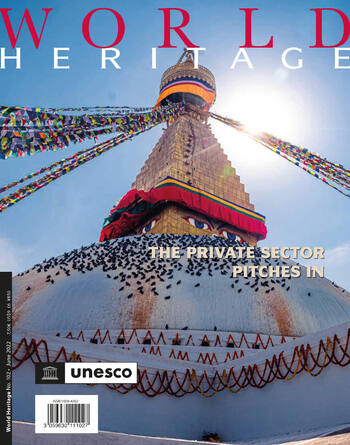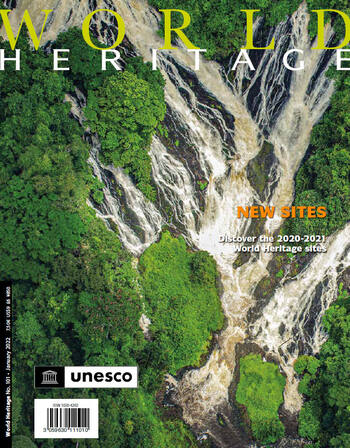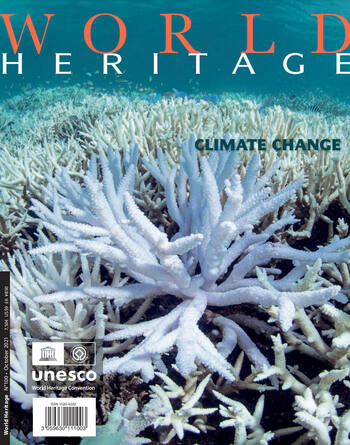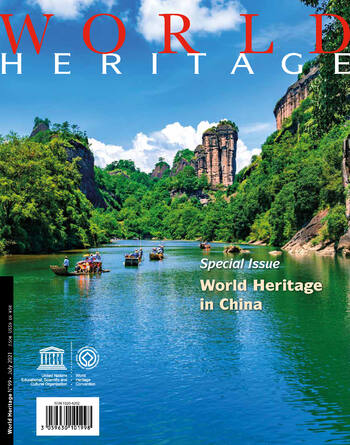World Heritage
World Heritage is the official UNESCO publication from the World Heritage Centre featuring in-depth articles on cultural and natural World Heritage sites.
n°108 - June 2025
World Heritage
Each issue of the World Heritage magazine goes beyond a visual account of cultural and natural sites: it invites readers to understand their significance and their uniqueness and to take action for their long-term protection. ...
n°107 - April 2025
World Heritage
The reconstruction of the Cathedral of Notre-Dame in Paris, following the fire of 2019, illustrates the enduring relevance of World Heritage – a precious legacy that transcends time, unites people and reflects our collective ...
n°106 - July 2024
World Heritage
UNESCO's World Heritage is much more than a List of remarkable sites. It represents the common heritage of humanity – a collection of cultural and natural treasures that transcend borders and generations. These sites tell the ...
n°105 - June 2024
World Heritage
Traditions, ancestral knowledge and ways of life of local communities are essential elements of World Heritage. In the quest to continue safeguarding and promoting cultural and natural treasures of our humanity, UNESCO ...
n°104 - September 2023
World Heritage
The extended 45th session of the World Heritage Committee begins in the Kingdom of Saudi Arabia, we express our gratitude to our hosts for convening the first in-person Committee since the onset of COVID-19. Surrounded by old ...
n°103 - November 2022
50th anniversary to the World Heritage Convention
It is a great pleasure for me to share this 50th anniversary of the World Heritage Convention celebration with you. Over the past five decades, the World Heritage Convention has ...
n°102 - June 2022
The private sector pitches in
World Heritage sites require an enormous number of resources for their protection. Conservation needs are met in different ways by governments, vibrant communities, or donors of many ...
n°101 - January 2022
New World Heritage sites 2020-2021
This year we will celebrate the 50th anniversary of the World Heritage Convention: a unique legal instrument that protects both both cultural and natural heritage. Because of this, the ...
n°100 - October 2021
Climate Change
Climate change is the defining issue of our time, and among the greatest threats facing cultural and natural heritage today. One in three natural sites and one in six cultural heritage sites are currently threatened by ...
n°99 - July 2021
Special Issue - World Heritage in China
It is a great pleasure to meet for this extended 44th session of the World Heritage Committee to be held from 16 to 31 July 2021 in Fuzhou, China and online. As China is home to a ...
n°98 - April 2021
Monitoring World Heritage from Space
Observing heritage sites from space for the sake of preservation has a long history. In the early 1920s, scientists were already using aerial photographs to map archaeological sites and ...
